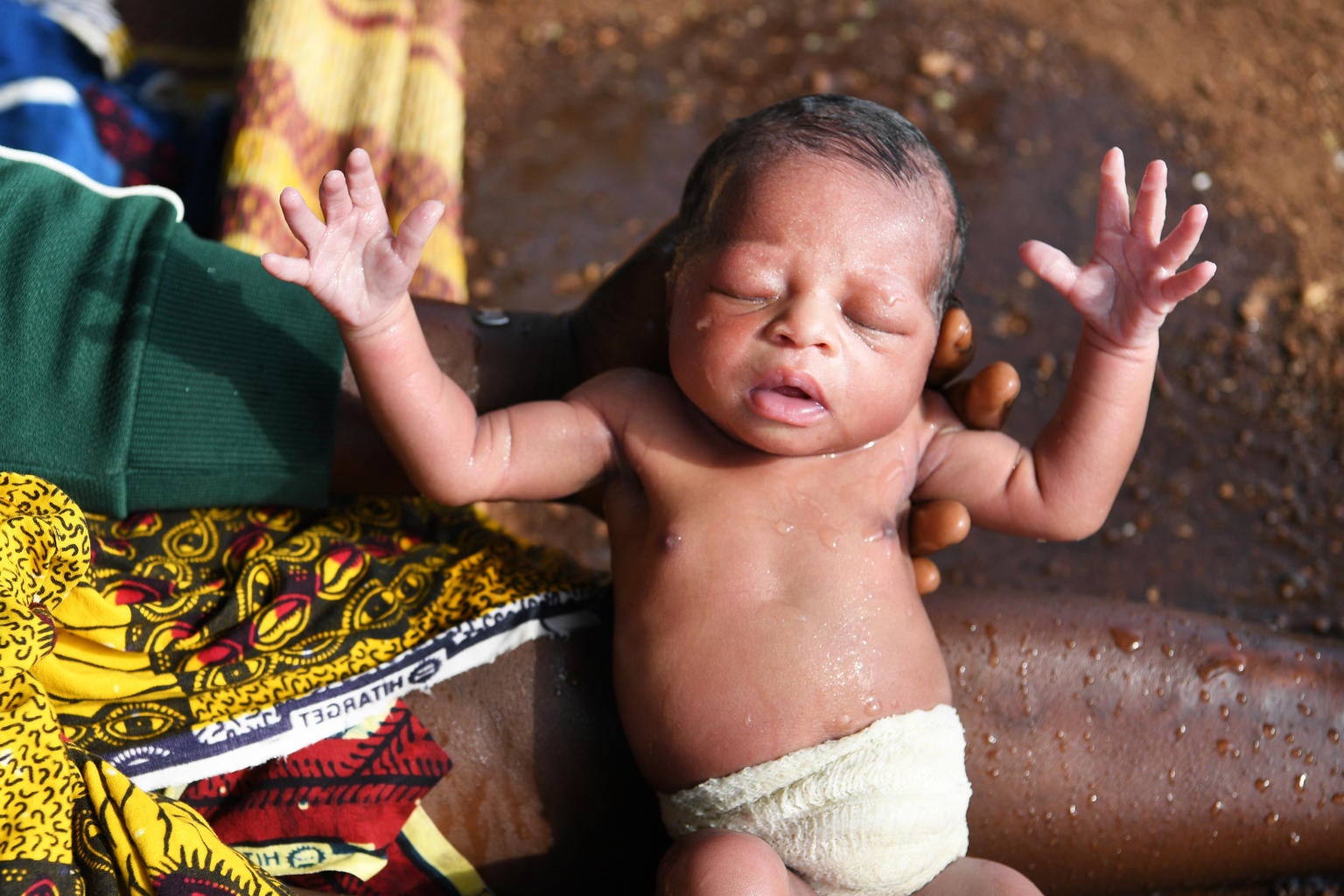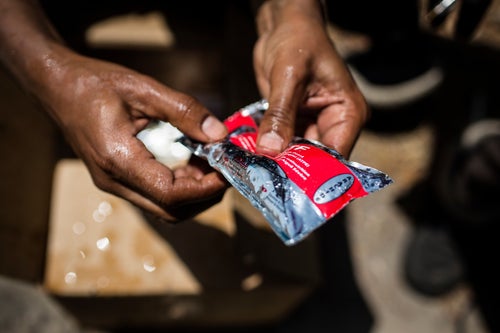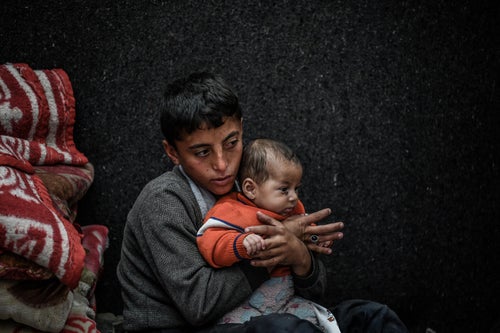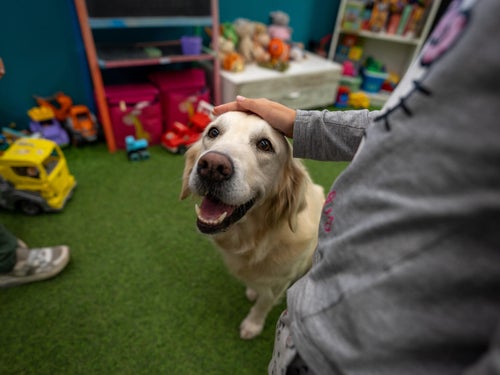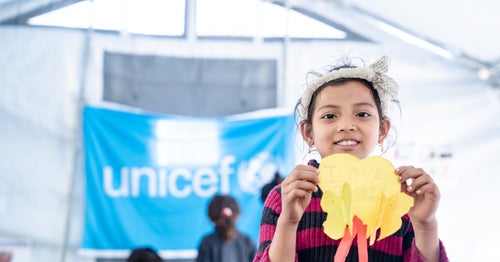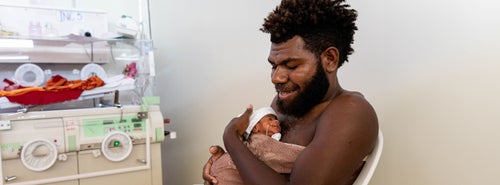Everyday, tiny newborn babies die - mainly due to preventable causes and because of uncontrollable circumstances such as conflict, violence and poverty. Many of these newborns enter the world and are immediately faced with life-threatening challenges. Despite these terrible difficulties, we know there is hope for newborn babies around the world. This incredible photo series of three strong babies will give you something to smile about.
Baby Nahawa's path to recovery
When a baby is born prematurely, every second counts. Help from skilled midwives and medical staff could be the difference in saving a baby’s life. That’s why UNICEF trains health workers who can help newborns at their most critical time of need.
Nahawa was born early, weighing just 1.2kg. Her mother Kadidia, had already been through the unimaginable trauma of losing five children - her first four babies were stillborn and another died after contracting tetanus.
But thanks to health workers who taught Kadidia simple ways to keep her newborn baby from getting cold and ill, Nahawa survived.
“At the centre, they gave me three types of medicines to give to my baby,” Kadidia says.
“They also told me to keep my baby close to my breast because she was born too small. This way, she keeps warm and doesn’t fall sick. It’s my first time doing so.”
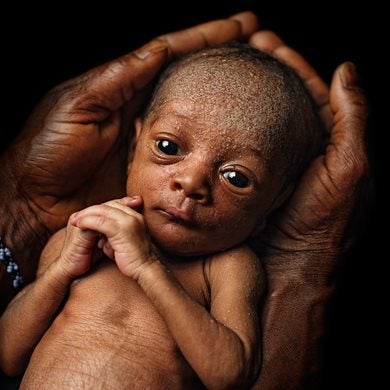
Julia never wanted this to happen again
Julia lives more than 2.5 hours away from the nearest health centre in a remote town in Peru. She gave birth to her first son in the middle of a dirt road, afraid and alone.
“I thought I was going to die. I never wanted that to happen again,” she says.
When Julia fell pregnant again, she made sure to stay in a UNICEF-supported mama wasi, a “mother house”, where mums have a place to stay and rest in the lead up to giving birth. UNICEF helped build the first mama wasi in 1999 and many have been built since.
“Because I live so far away with no public transport nearby, I came to the mother house to protect myself and my baby,” Julia says.
“I was a little scared the first night because I was alone, so far away from home. But I felt comforted there. There were midwives at the house. I knew all would be fine.”
After two days in the house, Julia was taken to hospital where she safely gave birth to a baby boy named Yack. The midwife gave her a change of clothing and blankets to keep warm.
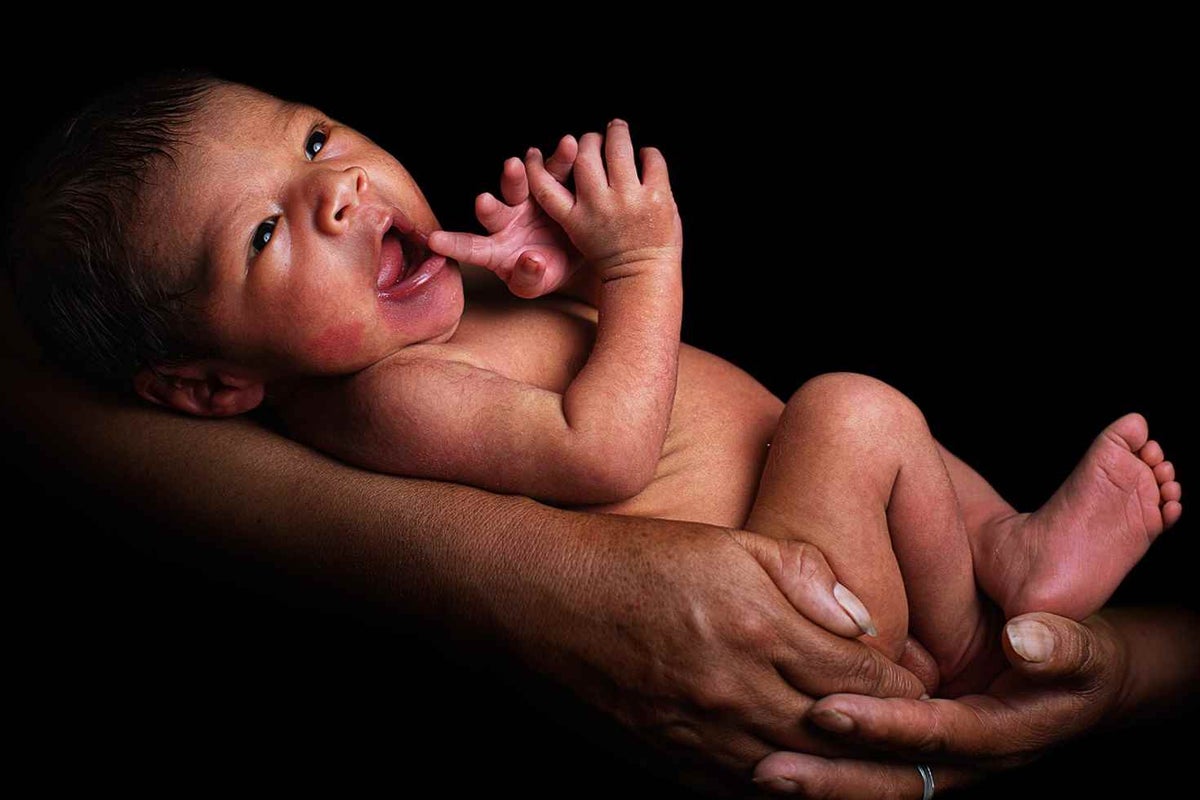
This one simple tool saved Mamadou
Aminata was exhausted. She had been in labour for a full day and didn’t have the strength to continue pushing. She had previously given birth to a stillborn baby at just 18-years-old.
“I thought that I was going to die. I was so tired that I can’t remember anything anyone told me,” Aminata says.
Luckily for Aminata, her doctor, Dr Soumaila Traoré, was trained by UNICEF to use a suction device applied to the baby’s head in childbirth in order to deliver the newborn safely.
“The ventouse is the most useful tool because it allows us to save children,” Dr Traoré says.
“When I see a mother with her baby and it’s because of a UNICEF intervention, it’s such a good feeling – very often, we would have lost the baby.”
Aminata was very relieved when she finally saw her baby boy, Mamadou.
“They put him on my chest and wiped him with a linen cloth,” she says. “When they put him there, I felt so happy that I finally got to see him.”
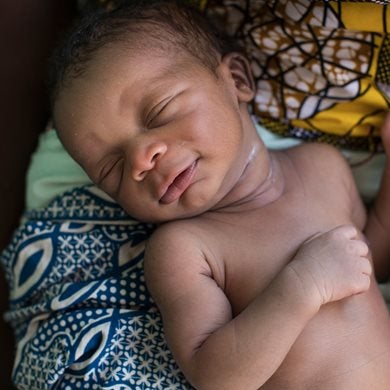
Are you smiling?
Return the favour and give a child a reason to smile.
We hear about babies every day. They are faced with unimaginable challenges - sometimes even before they enter the world. These newborns shouldn’t have to put up a fight. They deserve our attention and our help.
UNICEF health workers know how to ensure newborns have the best chance of life in those critical first 1,000 days. But we can’t do it alone. Join our UNICEF family and become a monthly supporter in Australia to deliver emergency food, vaccinations and baby resuscitation kits.
What we are doing is working. Every day, UNICEF donors make thousands of children like baby Priscilla smile because they are giving them the best chance to survive, thrive and reach their full potential. Please help make sure mothers and newborn babies around the world have the best chance to survive by donating today.
DONATE TODAYRelated articles
Stay up-to-date on UNICEF's work in Australia and around the world



